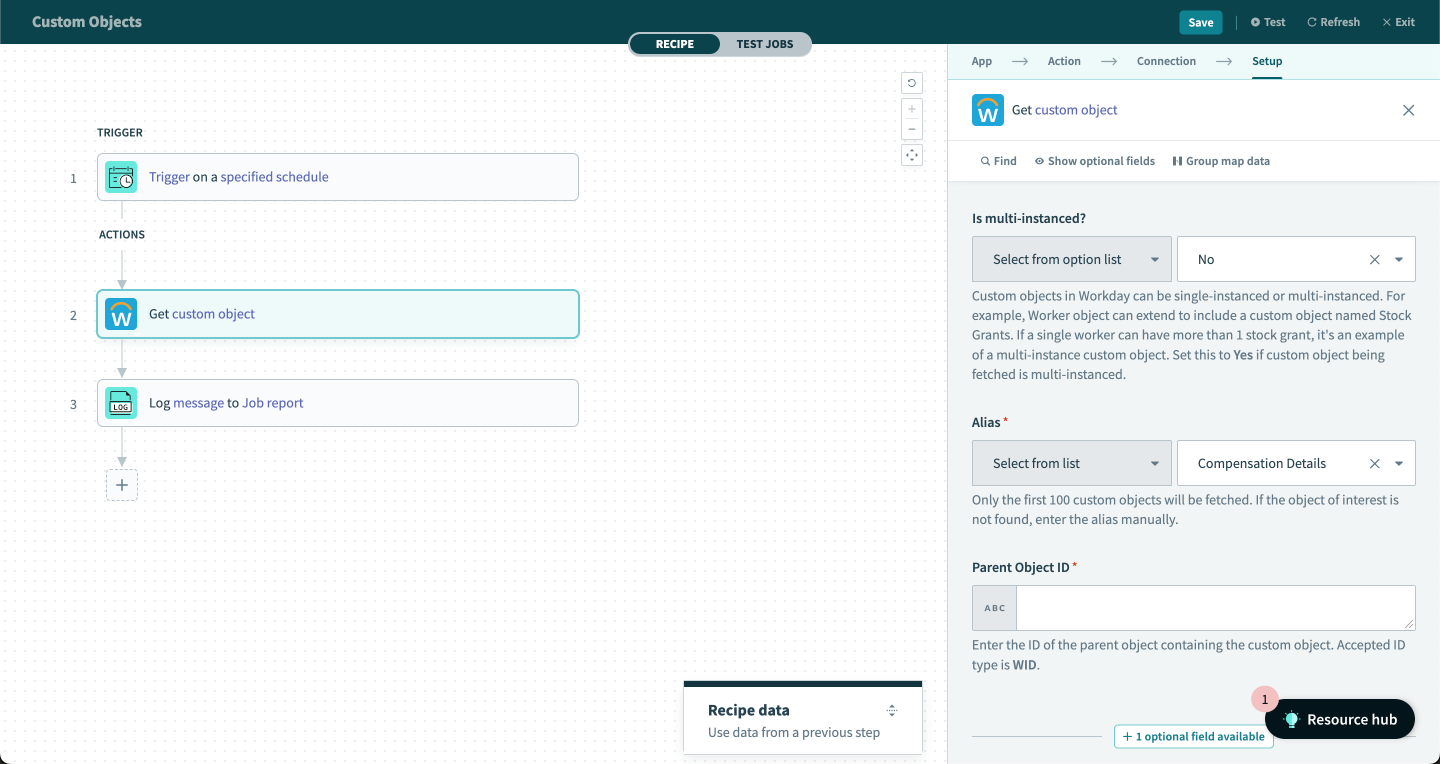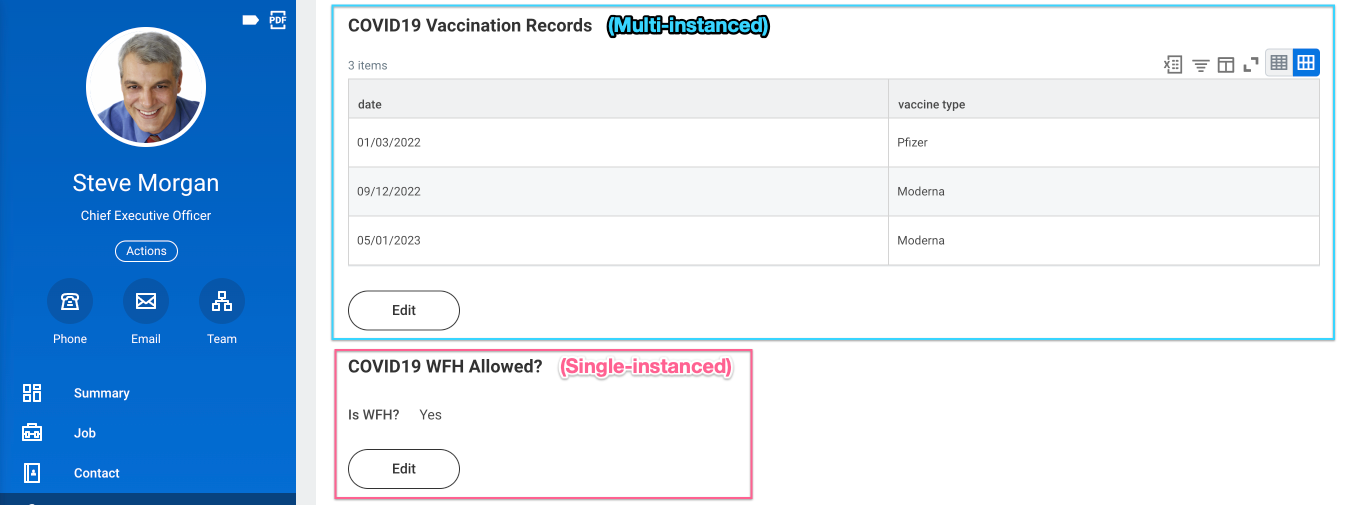# Workday - Get custom object action
You can extend Workday business objects by configuring custom objects. These custom objects are based standard Workday business objects and can be used to store additional information. This allows you to capture data unique to your organization in Workday. This action allows you to retrieve a custom object value of a specific Workday object.
# Example
For example, we are setting a new onboarding process for our employee. Every employee has to undergo a drug test. On Workday, we set up a custom object called drugTested under the parent object Workers.
We can use this action to check if a drug test has been conducted for this worker.
# Inputs
 Get custom objects action
Get custom objects action
| Input field | Description |
|---|---|
| Alias | Select the custom object that you want to retrieve. This is the Web service alias. |
| Parent object ID | The Workday ID of the parent object that you are selecting. |
| Custom object fields | Define the fields in this custom object. If left blank, it will retrieve all fields with their default names. |
| Is multi-instanced? | Custom objects in Workday can be single-instanced or multi-instanced. An example of multi-instanced custom object is a worker's COVID19 vaccination records, whereas an example of single-instanced custom object is whether worker is allowed to work from home. Set this to Yes if custom object being fetched is multi-instanced. |
 Example of single-instanced and multi-instanced custom object
Example of single-instanced and multi-instanced custom object
# Supported parent objects
Workday supports extending the following list of objects with custom objects:
- academicAffiliates
- academicUnits
- academicUnitHierarchies
- bankAccounts
- businessAssets
- companies
- costCenters
- customers
- customerContracts
- customerContractLines
- customerInvoices
- customerInvoiceAdjustments
- employeeContracts
- formerWorkers
- jobProfiles
- ledgerAccounts
- loans
- locations
- positionRestrictions
- projects
- applicants
- purchaseOrders
- regions
- supervisoryOrganizations
- suppliers
- supplierContracts
- supplierInvoices
- supplierInvoiceAdjustments
- workers
# Example
Let's us assume that there can only be one instance of drug test status for each worker. To retrieve the drug test status of Worker 1da8b422311b4929bfa4520f7f0b4e83, we will use the Get custom object action and define it like so:
- Alias:
drugTested - Parent object ID:
1da8b422311b4929bfa4520f7f0b4e83 - Is multi-instanced?:
No
# Outputs
The outputs of this action can be one/more instances of the custom object, depending on whether the object is single- or multi-instanced. The contents of each instance are as follows:
| Output field | Description |
|---|---|
| ID | A unique Workday ID for this custom object. |
| Custom field values | The values for the custom fields belonging to this specific Workday object. |
Each field is retrieved and converted into a datapill. These can be used in subsequent recipe actions.
Parent object ID
If the parent object does not contain the custom object, this action will return Error 404: Not found.
Last updated: 1/16/2026, 4:23:47 PM